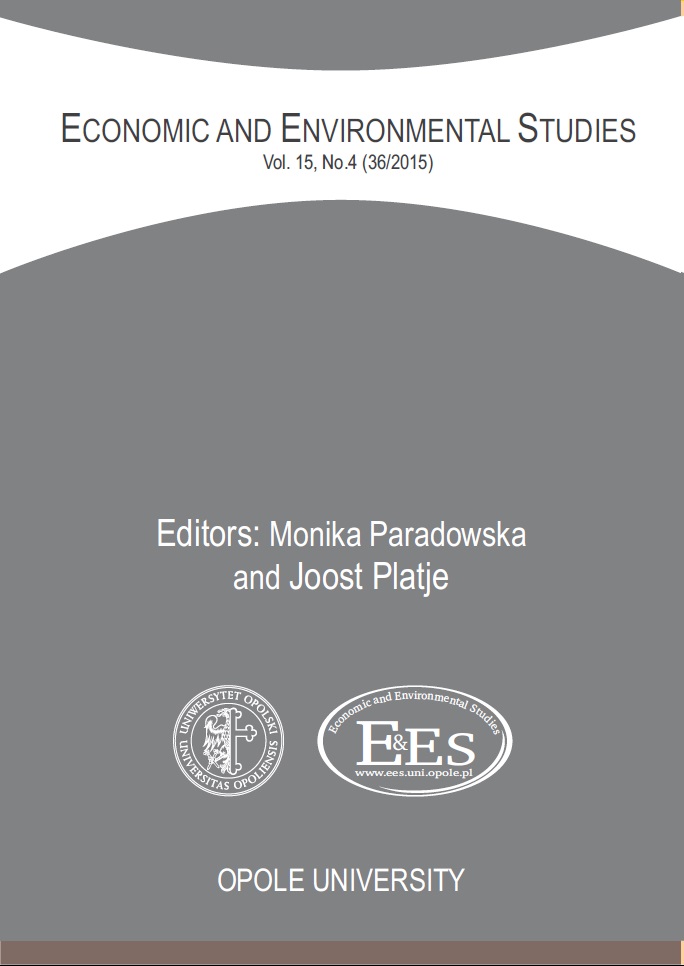Eco-innovation as a driver of regional smart specialization: the case of Lublin province
Eco-innovation as a driver of regional smart specialization: the case of Lublin province
Author(s): Armand Kasztelan, Tomasz KijekContributor(s): Monika Paradowska (Editor), Joost (Johannes) Platje (Editor)
Subject(s): Economy, Energy and Environmental Studies
Published by: Uniwersytet Opolski
Keywords: region; smart specialization; eco-innovation; bio-economy; renewable energy resources; Poland; Lubelskie province
Summary/Abstract: According to the Europe 2020 strategy (European Commission, 2010), the development of EU countries should be based on three interrelated priorities: smart, sustainable and inclusive growth. Smart growth should be based on the increasing role of knowledge and innovation as the driving forces of future growth. In practice, this will require the improvement of both educational quality and the outcomes of research activity, the promotion of innovation and knowledge transfer within the Union, full exploitation of information and communication technologies, as well as ensuring that innovative ideas are translated into new products and services. The main purpose of this paper is to present the role of eco-innovations in a process of smart specializations identification and realization in one of the Polish regions – the Lublin province. According to the Regional Innovation Strategy for Lubelskie province (RIS), the key specialization is to become a bio-economy including selected activity areas (including sciences) related to the manufacture and processing of biological-origin resources (bio-resources) for food, energy and medical purposes. Methodology of smart specializations selection, has moreover allowed the identification of complementary specialization in the form of medical and health promoting services, supporting specialization, e.g. IT and automatics, and emerging specialization, i.e. low-emission energy generation (Zarząd Województwa Lubelskiego, 2013). The eco-innovations will play a key role in the implementation of two specializations of the region: the bio-economy and low-emission energy generation.
Journal: Economic and Environmental Studies
- Issue Year: 15/2015
- Issue No: 4 (36)
- Page Range: 397-413
- Page Count: 17
- Language: English

